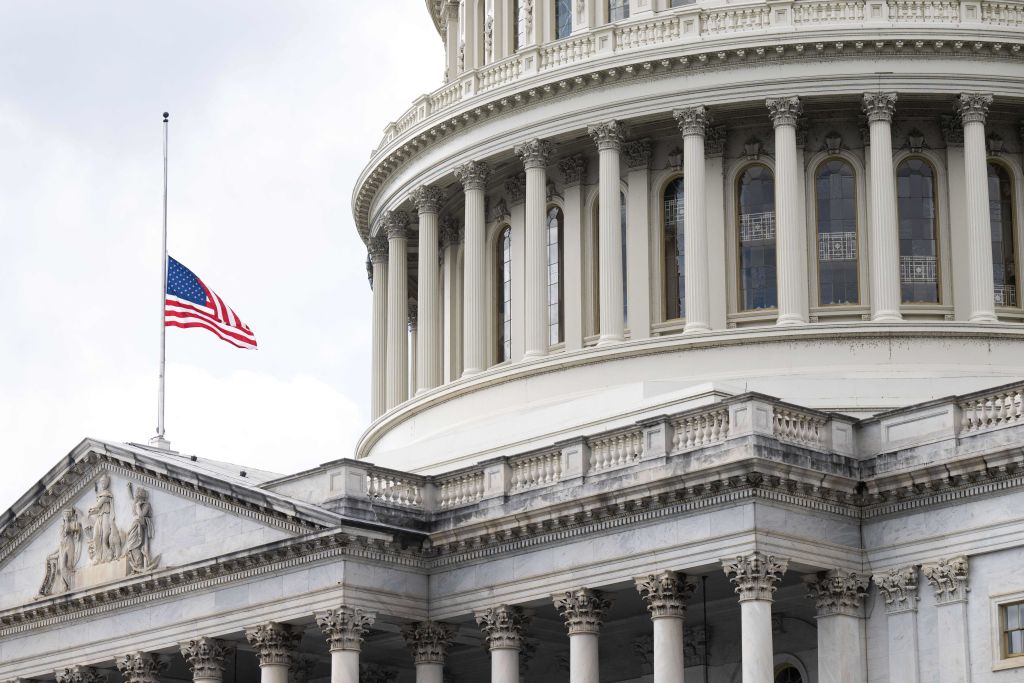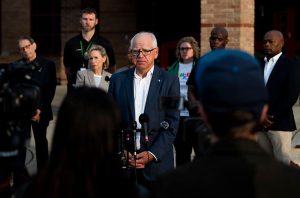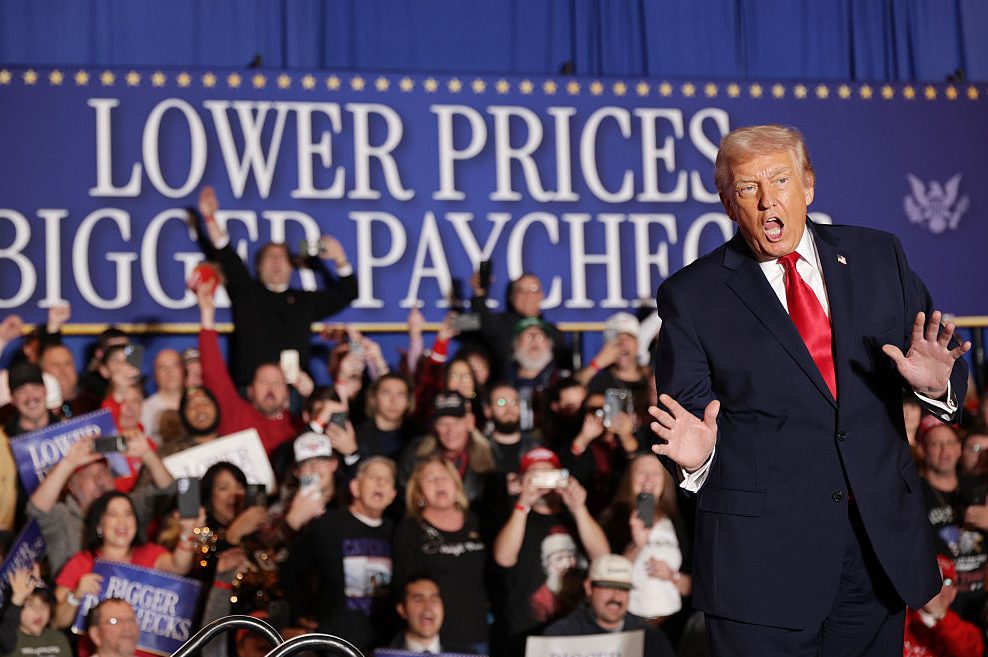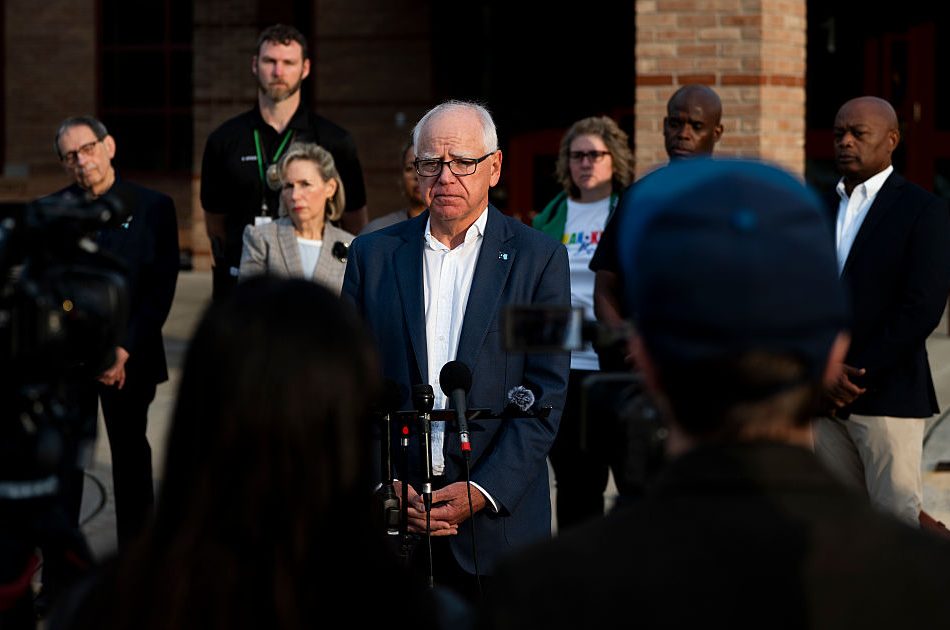Welcome to Thunderdome, where for once the number one story in the political world barely involves Donald Trump or Joe Biden. Instead, the only story anyone’s talking about revolves around Kevin McCarthy and Matt Gaetz, and an act of political assassination that saw eight Republicans cross party lines to join with unanimous Democrats to lop off the head of the party’s speaker and greatest fundraiser. McCarthy as Ned Stark and Gaetz as Joffrey doesn’t track, exactly, since the boy from Bakersfield wanted that job and gave up enormous leverage to get it — but from the moment Gaetz brought the motion, people in Washington assumed that McCarthy would cut a deal with Democrats to survive. But that proved a bridge too far. Having sacrificed so much to his right flank, McCarthy was not content to stay on as a dependent to the whims of the party to his left. So the blade came down, and it fell to North Carolina’s nattily bow-tied Patrick McHenry to bring the gavel down.
As I wrote yesterday in The Spectator:
As the speaker race begins, the odds favor Steve Scalise or Jim Jordan — both more satisfying to the right wing than McCarthy, but far less capable of fundraising as he did to protect the tenuous hold of moderates in blue states. But no matter who replaces McCarthy, the center of gravity for Republican leadership in Washington that stood with House leadership for the past nine months is now in the Senate. With the upcoming elections likely to return Mitch McConnell to majority leader status, or pass the baton to one of the three Johns, it stands to be there for the foreseeable future. That is not, to say the least, good for the next generation of conservatives.
The speaker’s race will play out in the coming weeks, and the vengeance toward The Hateful Eight is TBD — but in the meantime, what does all this mean for Republicans in 2024? With the House in chaos, effectively run now by Democrats, will they manage anything approaching an agenda? Or will they drag their party down? We discuss this and more on today’s podcast. Listen and subscribe today!
Read more on the fallout and what led the GOP to this historic point:
- Charles Lipson: This was no fake fire alarm.
- Roger Kimball: Matt Gaetz upends the apple cart.
- Michael Brendan Dougherty: ‘Someone Better’ is nobody.
- Fred Bauer: The widening gyre.
- Freddy Gray: Who could be the next Republican unity speaker?
- Jacob Fischler and Jennifer Shutt: Your guide to how a speaker pro tem can function.
Who will fill the fundraising gap?
More important than the lack of a speaker in election terms is the lack of the speaker-as-fundraiser dynamic that Kevin McCarthy turned into his greatest skill, raising close to half a billion through his attached groups in the 2022 cycle. This takes on even greater importance considering how many financial burdens are faced by the likeliest nominee of the GOP, who was back in court again this week.
James Downs writes at National Journal:
McCarthy, a prolific fundraiser who relishes pounding the campaign trail pavement, has not committed to serving the remainder of his term as a member of the rank-and-file, but he has suggested he could still play a part in electing Republicans and defending the House.
“I’m a free agent now. I think I’m pretty good at electing people,” McCarthy said at a news conference Tuesday night.
If he walks away from the conference, House Republicans would lose their campaigner-in-chief a little more than a year out from the election where the future of their narrow five-seat majority could turn on just a few races. Many of those key races are in New York and California, McCarthy’s backyard and some of the most expensive districts in the country…
McCarthy also didn’t rule out using his fundraising capabilities to support challengers to the eight members who booted him from his post. Many of those received his financial support over the last few cycles. The CLF spent $4.2 million to help Representative Nancy Mace of South Carolina in 2020 and nearly a million boosting Representative Eli Crane of Arizona last year. Mace and Crane both voted to remove McCarthy.
In his parting words as speaker, McCarthy darkly quipped that the committees will be fine with his absence: “I’m sure Matt Gaetz will give the NRCC a lot of money.”
A GOP source confirmed that Gaetz, the man responsible for removing McCarthy, has not donated to the NRCC since 2020.
As for the Q3 announcements from the presidential campaigns themselves, Donald Trump and his PAC announced a mega-haul of $45.5 million, with $37.5 million cash on hand; Ron DeSantis announced a $15 million haul, as well as a move of a third of his campaign team from Florida to Iowa; and while Nikki Haley hasn’t announced her totals yet, she’s sending signals of a good quarter with a fundraising push backed by billionaire Harlan Crow.
The independents are coming
While independent candidacies tend to be dismissed as wastes of time in the American system, rarely do you have the opportunity to see them take on two candidates so divisive and hated that there’s a path to relevance — especially in key states where the margins are so close. While it remains to be seen if Joe Manchin will throw his lot in with the No Labels crowd, two candidates are signaling they’re taking their independent runs seriously, and who they help or hurt could determine the Electoral College outcome.
On Monday, Robert F. Kennedy Jr. will deliver a speech in Philadelphia that he’s been teasing as charting a path to the White House. As I wrote at The Spectator:
The logistics of an RFK independent run would be the challenge — unless, given the unique changes that have taken place in their leadership over the past few years, he is able to run under the standard of the Libertarian Party. According to the New York Times, Kennedy already met with party chair Angela McArdle over the summer. Already on the ballot in all fifty states, the party would offer Kennedy the chance to skip a major challenge for outsider candidates, presuming that he can win the nomination over the objections of delegates who find him insufficiently libertarian.
The irony of this situation is that it was always in the interests of the Democratic Party to be more welcoming of RFK’s challenge. They fear the potential he would have to undermine an already weakened Biden re-election effort, yes — but how much more damaging will he turn out to be as a non-Democrat?
And on the Green Party front — a party with access in many, though not all states — it looks like prominent professor Cornel West is going to go his own way:
West, an outspoken progressive and longtime university scholar, has ruffled feathers among Democrats, who view him as a potential spoiler for President Joe Biden’s reelection chances. West has batted back the idea he might pull support from Biden in multiple interviews, saying the Biden campaign is free to court the voters flocking to him.
A former Bernie Sanders surrogate, West first entered the race on the People’s Party ticket. But that party’s lack of ballot access, soon compelled him to run for the Green Party’s nomination instead.
But now, West has broken up with the Green Party too. The campaign declined to elaborate further on the decision to leave beyond wanting to be more focused on voters than intraparty dynamics.
The West decision to break with the Greens makes it more likely that his candidacy won’t cause as much worry for Team Biden. But the RFK decision could definitely create headaches in key states.
Only bad debates allowed
The Republican National Committee’s insistence on controlling the presidential debate process is a crime against the primary voters and one more dunderheaded decision of top down restriction. Even with their likeliest nominee absent from the debate stages, this week the RNC cracked down on even having two candidates appear on the same program together.
Former governor Chris Christie and entrepreneur Vivek Ramaswamy have never shirked an argument or a camera, and they were planning to duke it out on Fox News — until the bright lights at the RNC stepped in with a threat to exclude them from future debates:
Although Fox News avoided the term “debate” when advertising the planned special segment, the RNC was not convinced. Christie and Ramaswamy both lashed out at the RNC in response, claiming it was proof of a “broken” primary process and harmful to the party’s ability to have substantive “dialogue” about issues. But, they still opted to appear back-to-back on Fox rather than risk their standing on a future debate stage.Maybe both parties are correct, but isn’t it a bit silly to try to gate-keep the GOP primary debates at this point? Donald Trump, the clear front-runner, won’t appear unless his lead is seriously challenged. Governor Ron DeSantis has managed to carve out his own spectacle by going one-on-one against Governor Gavin Newsom. Ramaswamy is running the podcast circuit. In a world where candidates are already overexposed, is one more Fox News interview really the problem?
The absurdity of a lack of real conversational debates without the time restrictions that arbitrarily force candidates to summarize complex issues with quips and jabs, especially in the age of three-hour podcasts, is absolutely insulting. The RNC should be ashamed of its continued role in preventing voters from hearing what candidates believe about a host of issues; all they’re doing is accelerating the likelihood that the debate process ends sooner than it should. And donors are already asking: what’s the point of even doing them if they can’t get the leading candidate on the stage?
One more thing
It’s rare that we get behind-the-scenes evidence of the meandering mental capacity of Joe Biden these days, since the White House has kept such a lid on his activity and reduced his public appearances where any questions could be asked. But we can get a taste through this interaction relayed by Sage Steele, the beautiful and brilliant sports talk host formerly of ESPN, on a recent appearance on Bill Maher’s podcast:
Steele continued, saying that after an aide informed Biden that the interview was with ESPN, he responded by musing, “You know, I used to play football.”
“And so he started to tell football stories of his greatness. And again, I can’t see him,” she said. “He goes, ‘And I had the best hands.’ What do you say to that?”
In high school, Biden was a standout halfback and wide receiver, and he briefly played football as a freshman at the University of Delaware.
Steele continued: “And then I said, ‘Oh, so you were a receiver.’ And he started to explain it. And here’s the saddest thing — his voice just trailed off. He said, ‘I was good,’ and then he went silent, and he goes, ‘Uhh, never mind.’”
“I thought it was so sad because I realized that’s why he was in his basement during the whole election cycle. Because even then, he couldn’t finish his sentences,” added Steele.
“He struggled. So forget about politics, I don’t care, I didn’t vote for him. However, that made me sad.”
Steele prefaced her story by saying she doesn’t like Biden and thinks he’s a “terrible president.”
“However, forget that. The human aspect of what we’re witnessing right now with him, to me, is heartbreaking. And it’s inexcusable by the family when you knew during the election,” she said.
If this is the sort of thing he’s doing in every interview, why is this man still running?

























